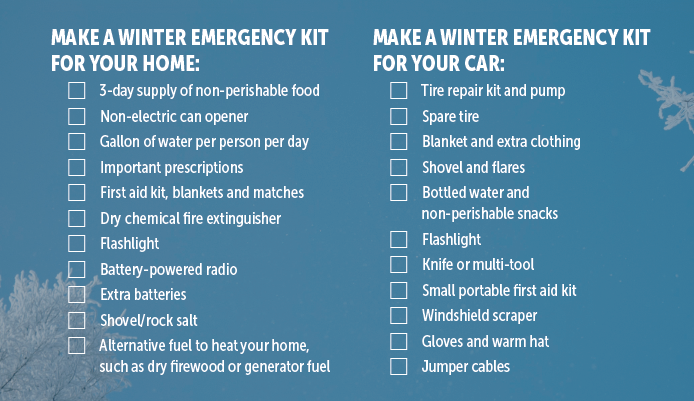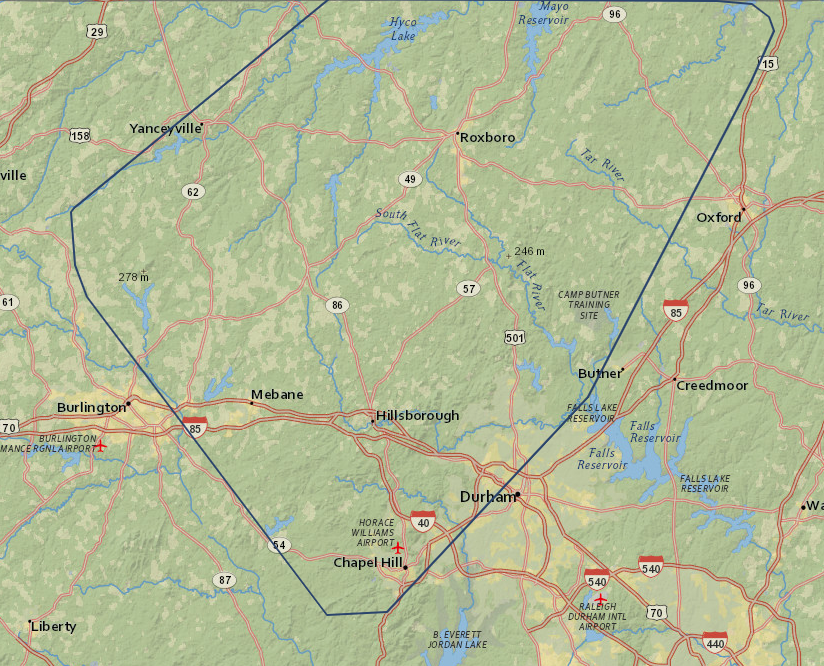Piedmont Electric Cooperative is committed to putting safety first. Our top priority is protecting our members, employees and the communities we serve while providing reliable electricity that powers your daily life. We also seek to empower our members to make smart decisions when faced with emergency situations like hurricanes and winter storms.
With our new meters, we often know the power is out before you do. However, you can also report an outage online through SmartHub or call our automated outage line at 800.222.3107. If registered with our outage alert program, you can also text #out to 800.222.3107. To report downed power lines or potential electrical hazards, call our 800 number. Learn more here.
Before you sign up for text outage notifications, make sure Piedmont Electric has your updated contact information.
If we don’t have the correct phone number or email address for you, we won’t be able to communicate with you to share important information during storms. Take a few moments to check your SmartHub account or call 800.222.3107 to verify that the information we have is correct so you can stay in the loop.
How to sign up for text outage notifications.
When you sign up for our text outage alert program, you can report outages directly from your phone. You’ll also receive restoration updates as they become available. Sign up by texting “pemc” to 800.222.3107.
North Carolina’s geographic location along the Atlantic coast makes us susceptible to hurricanes and tropical storms. Hurricane season runs June 1 through Nov. 30, and our state may also experience other forms of severe weather including thunderstorms, tornadoes and flooding, throughout the year. Here are some tips to help keep you and your family safe before, during and after a storm.
Before a Storm:
- Outline a communications and evacuation plan for your family before a hurricane or storm warning is issued to minimize confusion and fear. If you have pets or any livestock, include them in your plan.
- Create an emergency kit that includes 72 hours’ worth of food, water, medication and any other supplies you may need.
- Charge your cell phone so it can still be used if the power goes out.
- Bring all lawn furniture, decorations, toys and garbage cans in from outside. Tie down items that can’t be brought in like boats and trailers.
- Fuel up your car. A loss of electricity could put gas stations out of commission until power is restored.
- Close windows, doors and hurricane shutters. Plywood can be used to board up windows and doors if your house doesn’t have hurricane shutters.
- Secure your home and evacuate immediately if you live in a mobile home or flood zone.
During a Storm:
- Stay indoors and away from windows, skylights and glass doors.
- If flooding is imminent, turn off electricity at the main breaker.
- Listen to a battery-operated radio or TV for information about the storm and evacuation procedures.
- Avoid using the phone except for serious emergencies.
- Do not go outside until officials have issued an all clear, even if the winds have subsided. You may be in the eye of the hurricane and about to face another round of high winds and heavy rain.
After a Storm:
- Stay alert for extended rainfall and flooding even after the hurricane or storm has passed.
- Keep away from loose or dangling power lines or downed power poles. These lines could still be energized and can result in injury or death if you come into contact with energized lines. Report them immediately to Piedmont Electric at 800.222.3107.
- If power was out for an extended period of time, throw out any food that may have spoiled in the refrigerator.
- Know how to use your generator and read the instructions before use. Generators should be placed in an open and ventilated area. They should never be operated inside a home—including spaces like the basement and garage—due to the danger of inhaling carbon monoxide fumes.
- Take pictures of any damage that has occurred to your home for insurance purposes.
- Report power outages through SmartHub or by calling or texting us at 800.222.3107.
Winter in North Carolina brings the potential for snow and ice throughout the state. That weather brings the possibility of outages as power lines are weighed down by wintry precipitation. Piedmont Electric is prepared to respond to any winter weather impacts, and you should also take steps to prepare before a storm appears in the forecast.
Safety Precautions Before a Storm Hits
- Create an “emergency supply kit” full of essentials like blankets, flashlights, batteries, food and first aid items.
- Make a family communications plan that details what you will do in case of emergency.
- Bring pets indoors and move other animals or livestock to sheltered areas.
- Fill up your car with gas. Since gas stations often rely on electricity to power their pumps, a power outage may leave you without the option to get gas.
Driving Safety
- If possible, avoid driving during winter storms. If you absolutely have to drive, be sure to clear your windows and mirrors before getting on the road.
- If you see a utility vehicle – or any other vehicle with flashing yellow lights – on the roadside, remember to move over; it’s the law.
- Reduce your speed and maintain a safe following distance behind other vehicles because snow and ice may cause skidding.
- Do not apply the brakes if you begin to slide. Instead, take your foot off of the gas and turn the steering wheel in the direction of the slide.
- If traffic lights are out, treat the intersection like a four-way stop.
- Use extreme caution when crossing bridges and overpasses as they accumulate ice before other parts of the road.
Protecting Your Home and Family During Winter Weather
- Prevent your pipes from freezing by turning your faucets on just enough so they can drip, especially if temperatures approach 20 degrees F.
- If using a space heater or heat lamp, be sure to place it on a solid surface at least three feet away from anything combustible. Always turn off space heaters before leaving the room or going to sleep.
- Never leave a fireplace unless its embers are completely extinguished. Also consider using a glass or metal fire screen to catch sparks and rolling logs, and never store flammable liquids near sources of heat.
- Know how to use your generator and read the instructions before use. Generators should be placed in an open and ventilated area. They should never be operated inside a home—including spaces like the basement and garage—due to the danger of inhaling carbon monoxide fumes.
- Our right-of-way program helps keeps tree limbs clear from power lines to ensure system reliability. However, if you see limbs near power lines close to your home, please call our office so we can address the issue. Do not try to trim trees near power lines yourself.
- Never touch a downed power pole or line. These lines could still be energized and can result in injury or death if you come into contact with the line. Warn others to stay away and call 911 and Piedmont Electric at 800.222.3107.
- Report power outages through SmartHub or by calling or texting “#out” to 800.222.3107 or “#status” for an update on your outage.


Live Outage Map
Piedmont Electric will restore your service as safely and quickly as possible in the event of an outage. View our Live Outage Map for the latest updates on power restoration efforts.

